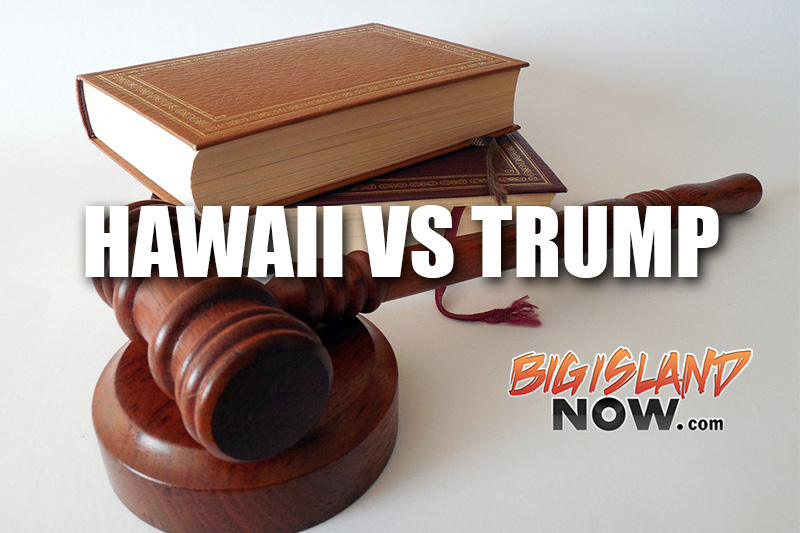Hawai‘i Asks Federal Judge to Clarify Scope of Travel Ban Injunction
 This afternoon, Thursday, June 29, 2017, the State of Hawai‘i asked federal district Judge Derrick K. Watson to clarify the scope of the travel and refugee bans in Hawaii v. Trump in light of Monday’s ruling from the United States Supreme Court.
This afternoon, Thursday, June 29, 2017, the State of Hawai‘i asked federal district Judge Derrick K. Watson to clarify the scope of the travel and refugee bans in Hawaii v. Trump in light of Monday’s ruling from the United States Supreme Court.
On Monday, June 26, the U.S. Supreme Court agreed to hear arguments later this year in appeals from two lower court decisions that had blocked certain portions of the travel and refugee bans from taking effect.
The court also made clear that the travel ban could not be enforced against foreign nationals who have a credible claim of a bona fide relationship with a person or entity in the United States, including those with a “close familial relationship.” The same standard applies with respect to refugee admissions.
In response to late guidance issued by the federal government as to how it intends to implement the bans, Hawai‘i’s motion asks the court to clarify that the federal government may not enforce the controversial bans against fiancés, grandparents, grandchildren, brothers-in-law, sisters-in-law, aunts, uncles, nieces, nephews and cousins of people currently living in the United States.
Today’s motion also states that lawyers for the plaintiffs in both lawsuits, after the Supreme Court ruling, repeatedly asked the Trump administration to indicate how it intended to implement the bans. The federal government did not respond until the information was publicly posted, hours before the partial bans are set to go into effect.
“In Hawai‘i, ‘close family’ includes many of the people that the federal government decided on its own to exclude from that definition,” Attorney General Chin said. “Unfortunately, this severely limited definition may be in violation of the Supreme Court ruling.”
Hawai‘i’s motion states in part:
ARTICLE CONTINUES BELOW ADHours ago, after days of stonewalling plaintiffs’ repeated requests for information, the government announced that it intended to violate the Supreme Court’s instruction. Beginning at 8 p.m. EST, it will apply the Executive Order to exclude a host of aliens with a “close familial relationship” to U.S. persons, including grandparents and grandchildren, brothers- and sisters-in-law, fiancés, aunts, uncles, nieces, nephews, and cousins. The government will also exclude refugees who have a “bona fide relationship” with a U.S. resettlement agency—including refugees who already have a documented agreement with a local sponsor, and a place to live. And despite the Supreme Court’s claim that a foreign national cannot be blocked by the Order if he or she “credibl[y] claim[s]” a bona fide relationship with a U.S. person, the government has instructed consulates to deny aliens entry whenever they are “unsure” if such a connection exists.
The government does not have discretion to ignore the court’s injunction as it sees fit. The State of Hawai‘i is entitled to the enforcement of the injunction that it has successfully defended, in large part, up to the Supreme Court—one that protects the state’s residents and their loved ones from an illegal and unconstitutional Executive Order.
Download a copy of the motion.
Download the memo in support of motion to clarify.
Sponsored Content
Comments





_1770333123096.webp)


